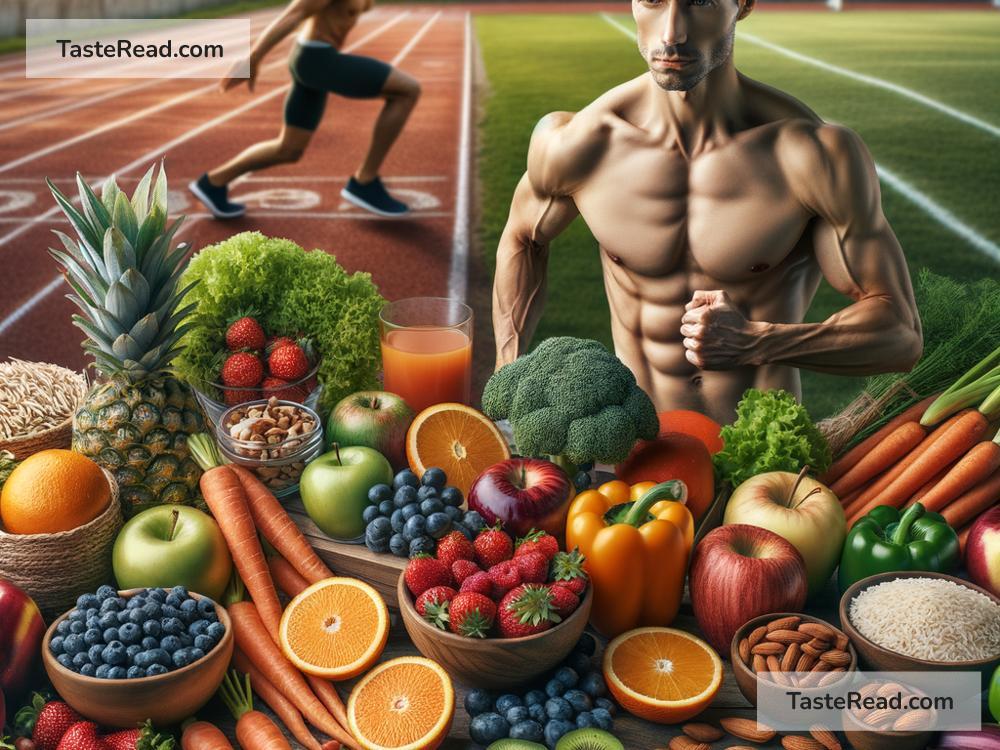The Benefits of a Balanced Diet for Athletic Performance: Supporting Physical Fitness
Whether you’re a weekend jogger, a gym enthusiast, or a competitive athlete, one thing is for certain: your body needs the right fuel to perform at its best. A balanced diet plays a massive role in supporting physical fitness and improving athletic performance. It’s not just about exercise – what you put on your plate can have an enormous impact on how much energy you have, how quickly you recover, and even how strong you feel over time. In this blog, we’ll explore why eating a balanced diet is key to becoming a healthier, fitter version of yourself.
What Is a Balanced Diet?
Before we dive into the benefits, let’s clarify what we mean by a “balanced diet.” A balanced diet includes a variety of foods that supply all the essential nutrients your body needs. These nutrients include:
- Carbohydrates: Your body’s main source of energy.
- Proteins: Essential for muscle repair and growth.
- Healthy Fats: Help absorb vitamins and provide long-lasting energy.
- Vitamins and Minerals: Support various body functions, like immunity and bone health.
- Fiber: Keeps your digestive system healthy.
- Water: Keeps you hydrated and helps your body function properly.
In short, a balanced diet doesn’t mean eating the same foods every day. It involves mixing things up to make sure you’re getting all the essential nutrients.
Why Athletes Need a Balanced Diet
Athletes and active individuals use more energy than people who aren’t as physically active, and a balanced diet helps them meet higher energy demands. When you’re exercising on a regular basis, your body needs enough nutrients to:
- Power your workouts.
- Build and repair muscles.
- Maintain proper hydration.
- Recover and prevent injury.
Without the right nutrition, your athletic performance could suffer, no matter how hard you train. Think of food as fuel for your body, and eating the wrong “fuel” can make it harder to achieve your fitness goals.
How a Balanced Diet Boosts Athletic Performance
Let’s take a closer look at the specific ways a balanced diet can enhance physical fitness and help athletes perform better:
1. Provides Energy for Workouts
Carbohydrates are the body’s primary source of energy. When you eat foods like rice, pasta, or fruits, your body breaks them down into glucose, which fuels your activity. If you don’t consume enough carbs, you might feel tired, sluggish, or unable to push through a tough workout. For athletes who need endurance—like runners, swimmers, or cyclists—carbs are vital.
2. Supports Muscle Growth and Repair
After intense workouts, your muscles experience tiny tears that need to be repaired and rebuilt stronger. Protein-rich foods like chicken, eggs, beans, and yogurt help this process by providing amino acids, the building blocks of muscle. Without enough protein, recovery becomes slower, and your body might struggle to adapt to training.
3. Improves Recovery
The nutrients you eat play a big role in speeding up your recovery after exercise. Healthy fats, vitamins, and minerals help reduce inflammation in your body, preventing stiffness and soreness. For instance, omega-3 fatty acids in fish like salmon support joint health, while potassium in bananas helps muscles relax after strenuous activity.
4. Boosts Immune Function
When you’re training hard, your immune system can become weaker, making you more vulnerable to illness. Eating a diet rich in fruits and vegetables ensures your body gets enough vitamins (like vitamin C) and minerals (like zinc) to keep your immune system strong and prevent sickness.
5. Improves Focus and Mental Clarity
Athletic performance isn’t just about physical strength; it also involves mental focus and coordination. Foods rich in healthy fats, such as nuts, seeds, and avocados, support brain health. With proper nutrition, you’ll feel more focused during games or workouts.
6. Enhances Hydration
Dehydration can seriously impact your stamina, reaction time, and ability to perform well. Drinking enough water is essential, but eating water-rich foods like cucumbers, oranges, and watermelon can also contribute to proper hydration. Electrolytes from foods like coconut water or leafy greens further help maintain fluid balance.
Creating a Balanced Diet for Active Lifestyles
So how can you put all this knowledge into practice? Here are some tips for creating a balanced diet that supports athletic performance:
- Start with carbohydrates: Include whole grains, fruits, and vegetables in every meal.
- Add protein: Incorporate lean sources like chicken, fish, tofu, eggs, and beans.
- Don’t fear fats: Choose healthy fats like avocado, olive oil, nuts, and seeds.
- Eat colorful foods: Brightly colored fruits and vegetables provide vitamins and antioxidants.
- Stay hydrated: Drink water throughout the day and after exercise.
- Snack wisely: Have quick, nutritious snacks like yogurt, a banana, or a handful of almonds to keep your energy levels up.
The Bottom Line
A balanced diet isn’t just good for general health – it’s essential for anyone aiming to improve their athletic performance. It provides energy, builds strength, speeds up recovery, and keeps your body in top shape. Remember, though, that every athlete has unique needs. Depending on your activity level or sports, you may need more of certain nutrients, such as carbs for endurance or protein for muscle-building. By listening to your body and making smart food choices, you’ll be giving yourself the best chance to succeed in your fitness journey.
Your workouts might last an hour or two, but the benefits of a balanced diet will fuel your entire day. So, next time you’re planning your meal, think of it as preparing the ultimate fuel for your active lifestyle – your body will thank you for it!


